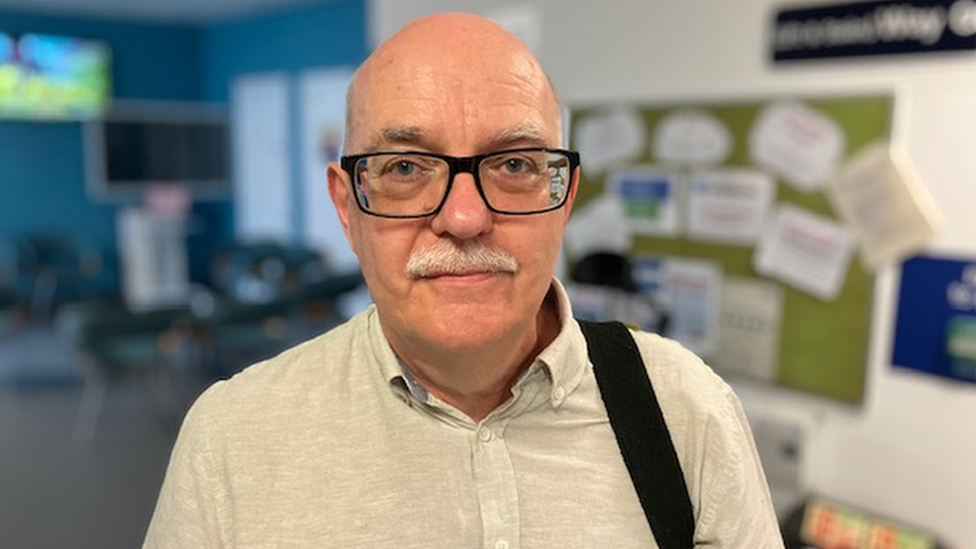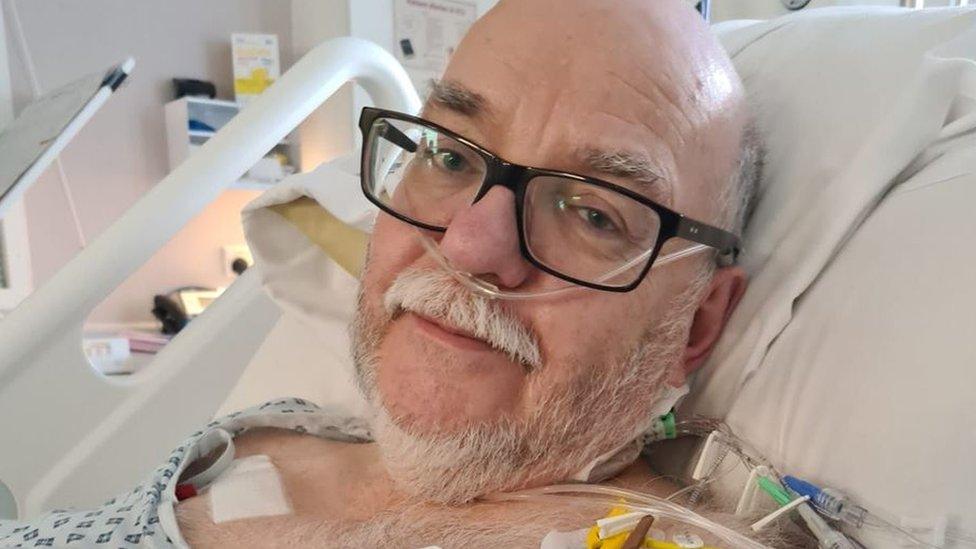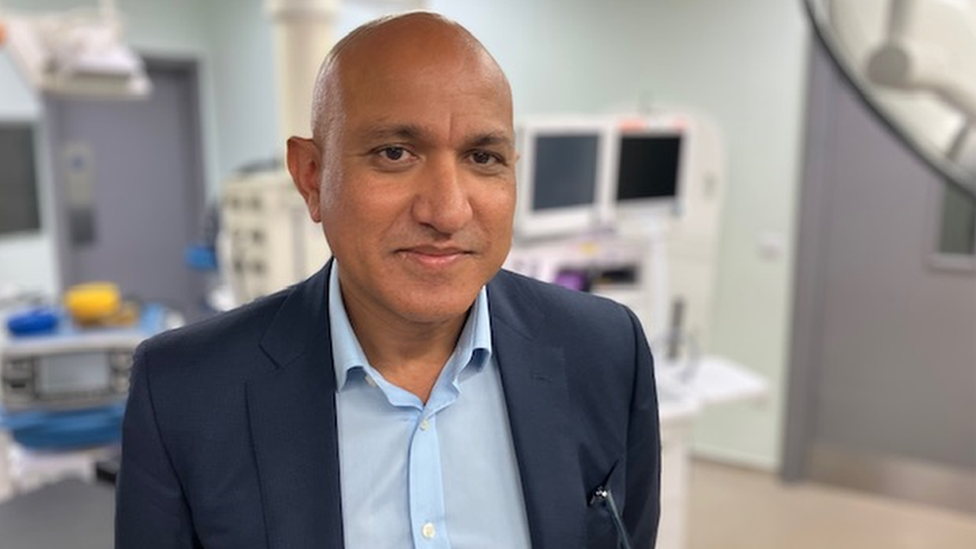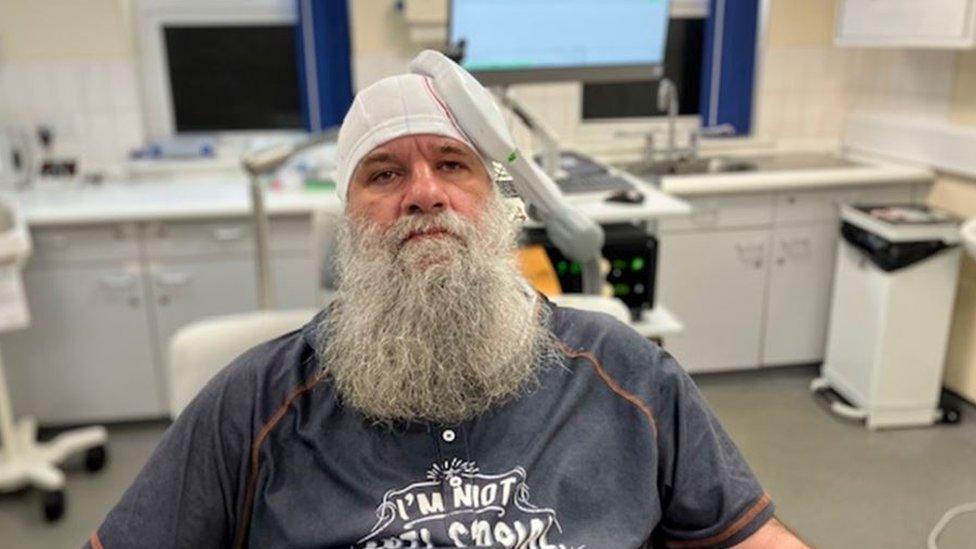Bristol study gives blood pressure patients brain stimulation
- Published

Patient Jay-Jay Martin said the treatment has given him a "new lease of life"
Patients suffering with high blood pressure have been given deep brain stimulation (DBS) as part of a study.
The treatment involves stimulating specific areas of the brain using an electrode.
The pilot at Southmead Hospital in Bristol has shown positive results and could help others with untreatable high blood pressure, doctors said.
One of the six patients involved, Jay-Jay Martin, said he thought he would never be active again.
The 60-year-old from Bristol received the treatment following ten years of blood pressure readings more than double what they should have been.
"Before the operation you would see me on a bed or in a wheelchair, helped by others. You see me right now sitting on a chair - I think this describes it all," he said.

Mr Martin said he was frequently admitted to hospital because of his high blood pressure
The study for refractory hypertension was offered to a small number of patients for whom no other treatment had worked.
The treatment, which is carried out using a state-of-the-art robot at North Bristol NHS Trust, is typically used in patients with Parkinson's and those with intractable pain.
Neurosurgeon Nik Patel founded the DBS treatment alongside researchers at the University of Bristol and University Hospitals Bristol NHS Foundation Trust.

Mr Patel hopes to have a national clinical trial on the new technique
He said five of the six recipients found their blood pressure improved and four of them now had normal blood pressure readings.
The study marked the first time anyone has been able to control sympathetic activity through brain stimulation, he explained.
"[I am] very pleased. It's the first record of its kind and not only can we control blood pressure we can increase blood flow in the brain and prevent individuals from having a stroke."
Studies funded by the British Heart Foundation and performed by the University of Bristol found DBS reduced the activity of nerves regulating blood pressure by 40%.
"Current drugs do not provide effective long term reduction in the activity of these blood pressure nerves - DBS appears to," added Dr Erin O'Callaghan, one of the doctors involved.
Southmead Hospital is planning to run a national clinical trial next.

Follow BBC West on Facebook, external, Twitter, external and Instagram, external. Send your story ideas to: bristol@bbc.co.uk , external
Related topics
- Published18 May 2023
